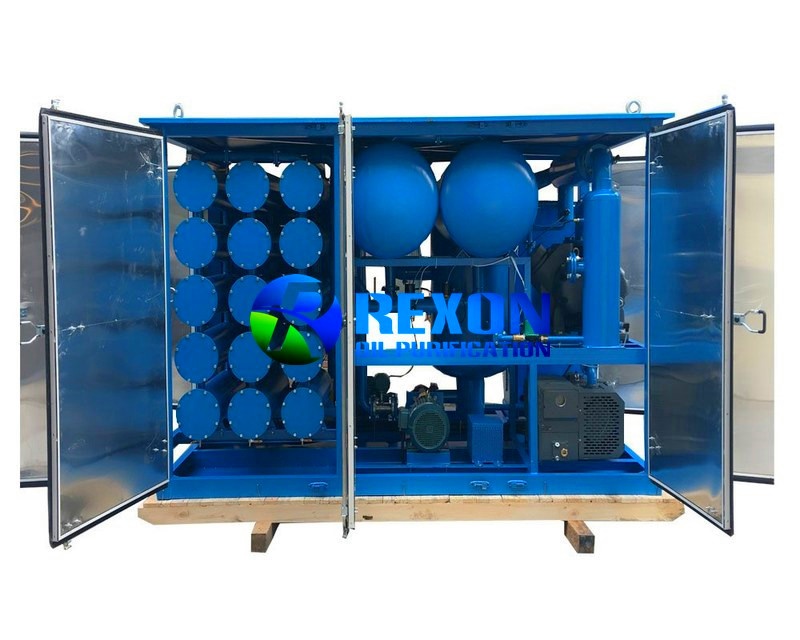The Function of a Transformer Oil Regeneration Plant in Modern Sector
The Function of a Transformer Oil Regeneration Plant in Modern Sector
Blog Article
Why Regenerated Transformer Oil Is Crucial for Reliable Power Systems
The critical function of regenerated transformer oil in guaranteeing the reliability of power systems can not be overemphasized. By bring back the oil's fundamental chemical and physical properties, the regeneration process substantially enhances its dielectric stamina and thermal efficiency.
Importance of Transformer Oil
Transformer oil plays a vital role in the effective procedure of electrical transformers. By offering thermal conductivity, transformer oil dissipates warm generated during electrical procedure, which is crucial for maintaining optimal operating temperatures and extending the life-span of the equipment.
In addition, transformer oil functions as an obstacle against dampness and air, which can result in oxidation and deterioration of transformer products. The presence of contaminants in the oil can significantly hinder its insulating buildings, resulting in functional inefficiencies and prospective tools failure. Normal monitoring and maintenance of transformer oil are consequently vital to making certain the proceeded performance of transformers.
The high quality and composition of transformer oil are extremely important, as they straight affect the reliability and efficiency of the electrical systems in which they run. Recognizing the significance of transformer oil is vital for utilities and sectors reliant on durable power facilities, emphasizing the need for reliable administration and regeneration processes to maintain oil stability gradually.
Advantages of Regrowth Refine

Additionally, the regrowth process alleviates the destruction of oil, which can cause enhanced oxidation and acid formation. This not just boosts the integrity of the oil however additionally lowers the risk of transformer failures due to insulation malfunction. The improved high quality of regrowed oil allows transformers to operate at optimal levels, ultimately causing enhanced power effectiveness and minimized functional expenses.
Furthermore, the regrowth procedure adds to maintaining the overall health of the power system. Transformers can run longer without the need for oil substitute, hence lessening downtime and upkeep efforts. In summary, the regeneration process supplies substantial advantages by boosting the durability and performance of transformer oil, guaranteeing that power systems operate reliably and successfully with time.
Ecological Effect and Sustainability
The regeneration process of transformer oil dramatically minimizes ecological concerns connected with oil disposal and waste management. Conventional disposal techniques for utilized transformer oil posture substantial risks, including dirt contamination and water contamination. By restoring oil, these risks are markedly reduced, as the process reuses existing sources rather of adding to squander build-up.
In addition, regenerated transformer oil can be recycled in various applications, which advertises a round economic climate. This not only minimizes the need for virgin oil removal-- a process that can be eco harmful-- but likewise conserves natural deposits. The regrowth process itself utilizes advanced filtering and filtration methods that get rid of damaging contaminants, making sure that the final item fulfills or surpasses industry requirements for performance and safety and security.

Enhancing Transformer Performance
Considerable renovations in transformer performance can be achieved via the use of regenerated transformer oil. This oil, generated through innovative filtration processes, substantially enhances the electrical insulation properties of transformers. By eliminating contaminations and contaminants that usually endanger efficiency, restored oil ensures exceptional dielectric stamina, decreasing the threat of electric failings.
In addition, regenerated transformer oil shows enhanced thermal conductivity, which helps with effective warm dissipation. This characteristic is vital for keeping optimum operating temperature levels, thereby extending the life expectancy of transformers and decreasing the probability of overheating - Transformer Oil Regeneration Plant. Boosted Clicking Here thermal management additionally adds to the overall reliability of power systems
Additionally, the chemical security of regrowed oil protects against the development of corrosive acids and sludge, which can adversely affect transformer parts. By keeping a cleaner inner setting, this oil minimizes maintenance requirements and expands service periods.
Cost-Effectiveness and Performance
In terms of cost-effectiveness and performance, regrowed transformer oil provides a compelling choice to traditional oils. The regrowth procedure not just removes impurities yet also recovers the oil's original residential or commercial properties, extending its useful life expectancy. This durability translates right into minimized regularity of oil replacement, therefore lowering functional costs with time.
Additionally, using restored oil can dramatically reduce energy losses related to inefficient shielding fluids. Its superior dielectric residential or commercial properties make certain ideal efficiency, enhancing the dependability of power systems. As an outcome, companies take advantage of lower maintenance prices and decreased downtime, cultivating a more effective functional atmosphere.

Conclusion
Finally, the regeneration of transformer oil plays an important role in making certain the blog here dependability and performance of power systems. By restoring the important chemical and physical residential or commercial properties of the oil, this process improves dielectric toughness and thermal conductivity, eventually decreasing the threat of insulation break down. The environmental benefits connected with recycling resources contribute to sustainability efforts, while cost-effectiveness and improved performance emphasize the need of utilizing regenerated transformer oil in modern electric framework.
Transformer oil plays an important function in the effective procedure of electrical transformers. Routine check over here surveillance and upkeep of transformer oil are therefore essential to guaranteeing the continued efficiency of transformers.
The regeneration process of transformer oil considerably minimizes environmental concerns linked with oil disposal and waste monitoring. By lengthening the lifecycle of transformer oil, the power and sources commonly eaten in creating new oil are significantly lowered.Substantial renovations in transformer efficiency can be accomplished with the use of regenerated transformer oil.
Report this page